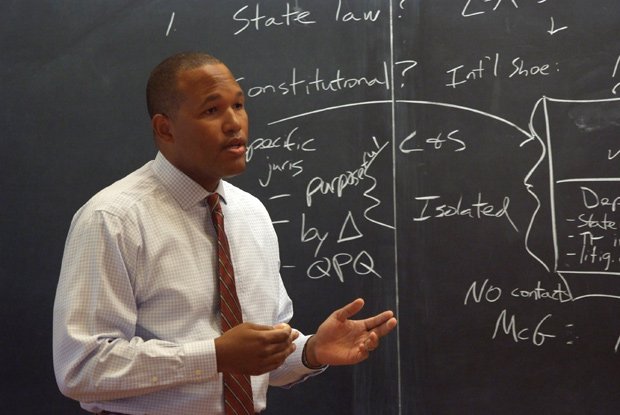W&L law professor Benjamin Spencer stumps for legal education reform.

Benjamin Spencer
Those involved with legal education have weathered some rocky times recently, with widespread criticism of the rising costs of law school coupled with a declining job market and recognition that lawyers are graduating with insufficient practical experience.
There has been an increasingly loud call to arms—from, among others, President Barack Obama—for a less theoretical, more hands-on approach to preparing students for the practice of law, particularly during their third year.
“Changes need to be made,” says Benjamin Spencer, 38, now in his fourth year as chair of the Virginia State Bar’s section on the Education of Lawyers and a professor and associate dean for research at the Washington and Lee University School of Law.
Like other faculty at W&L, Spencer, a Harvard Law School graduate who received the “Rising Star” award from the Virginia State Council of Higher Education in 2007, has been part of radical changes at the law school. He joined the faculty in 2008, when the school initiated a groundbreaking reform of its third year curriculum. Instead of lectures, W&L students in their final year now take part exclusively in hands-on work, with real-life client meetings, externships with law firms and simulated practice models.
A popular speaker who has done significant research on the history of legal education in this country, Spencer says that law schools today all have to follow the same scholarly national model set up by the American Bar Association in the 1920s to receive accreditation. “They have to have a library, full-time faculty, and what typically amounts to a three-year curriculum,” he explains, adding that these requirements contribute to the high cost of legal education. Prior to the 1920s, there were other more affordable models for legal education, including night schools taught by part-time faculty who were full-time practitioners by day, as well as schools that served as satellites to law firms.
While such models are not for everyone, Spencer advocates for more practice-based legal education so that lawyers enter the profession better prepared to meet real-world challenges.
A respected teacher, scholar and leader, Spencer has a reputation as a doer. Says Nora Demleitner, dean of W&L School of Law, “Ben gets things done.”








